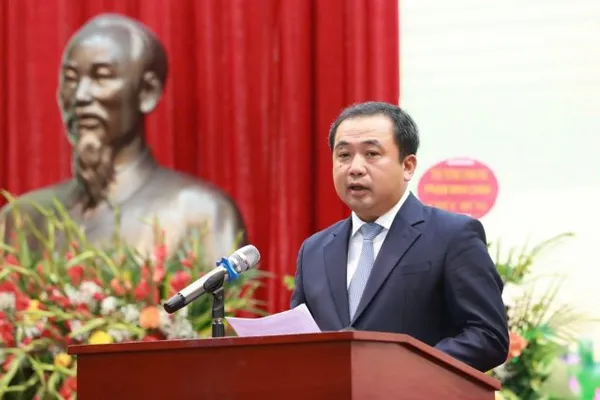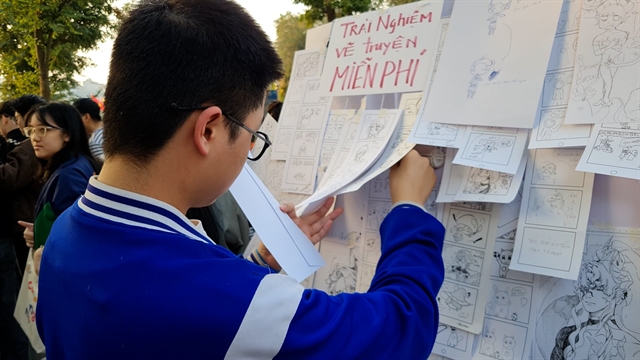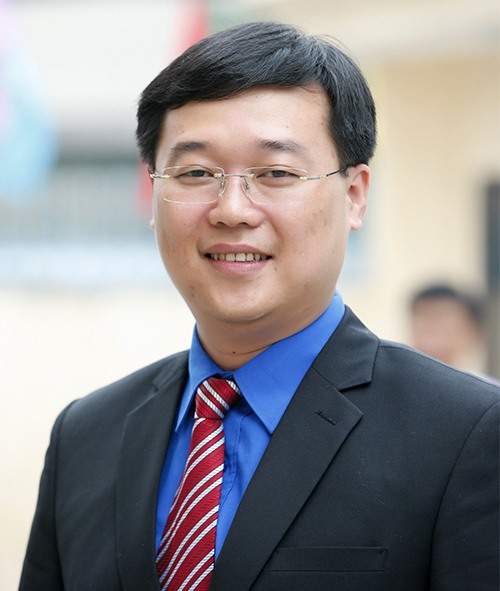 Opinion
Opinion

Lê Quốc Phong, First Secretary of the Việt Nam Students Association, speaks to Tuổi trẻ (Youth) newspaper on the need to create a good environment for Vietnamese students to display their talent and creativity
 |
Lê Quốc Phong, First Secretary of the Việt Nam Students Association, speaks to Tuổi trẻ (Youth) newspaper on the need to create a good environment for Vietnamese students to display their talent and creativity
What are the major achievements of the Việt Nam Students Association from 2013 to 2018?
In the last term from 2013 to 2018, the Việt Nam Students Association (VSA) has achieved a number of remarkable achievements. They can be summarised in the five main fields of academic study, personal ethics, voluntary activities, international integration and health.
Through these five major programmes, Vietnamese students have improved themselves to meet the major requirements of a modern labour market society.
Educational activities have instilled patriotism and raised awareness of national sovereignty as well as political responsibility towards the homeland, particularly in voluntary activities.
For the first time, the VSA launched a competition on “Students’ innovation ideas,” and more than 500 from the competition have been turned into reality. With lessons from the first competition, we launched the second competition and it was also a great success.
Another success we achieved in the five year period was our international integration activities. Through these activities, we helped improve our students’ foreign language skills, particularly in English.
Last, but not least, many outstanding students have become prominent activists in social activities and students’ activities.
What are the weaknesses that the Students Association needs to overcome?
I have to admit the association has sometimes failed to meet its members’ expectations. Sometimes we have not set our objectives too high against our capacity. These are the two most important lessons that we have drawn from the tenure from 2013-2018.
Regarding the coming tenure of 2018-2023, in my opinion, the Association should focus more on issues that Vietnamese students are interested in, particularly societal impacts and national development.
The “five main fields” the students carried out in the last tenure will continue to be done in the new tenure. However, the focus will be more on the quality of the young labour force, society as a whole and enterprises in particular. As Vietnamese students, we vow to do our best in whatever assignments we’re engaged in.
Does the Association have solutions to help the students put their innovative ideas into practice?
Yes, we will do our best to help the students implement their innovative ideas. For example, in recent years, universities have become effective spring boards for students to use what they learned in life. One vivid example is that many students have been awarded noble prizes for their scientific innovations. Of course, from the side of the Association, we vow to be loyal companions to student members and to be ready to give them assistance when they need us.
Students have closely followed changes in the society. Will the Association be able to guide the students in the face of these changes?
In the upcoming period, the VSA has to carry out two main functions. First, it must be a leader in the students’ movement. In other words, the association must be a facilitator for students to share new ideas and suggestions, and then together find solutions to put those recommendations into practice.
The other point I want to mention is that the Association should take a step ahead in detecting society’s new requirements and then consult with functional agencies in order to come up with good advice for the students. At the ongoing Congress of the Việt Nam Students Association we will officially introduce the VSA to all the delegates with the hope they will support the students’ activities and the VSA. — VNS